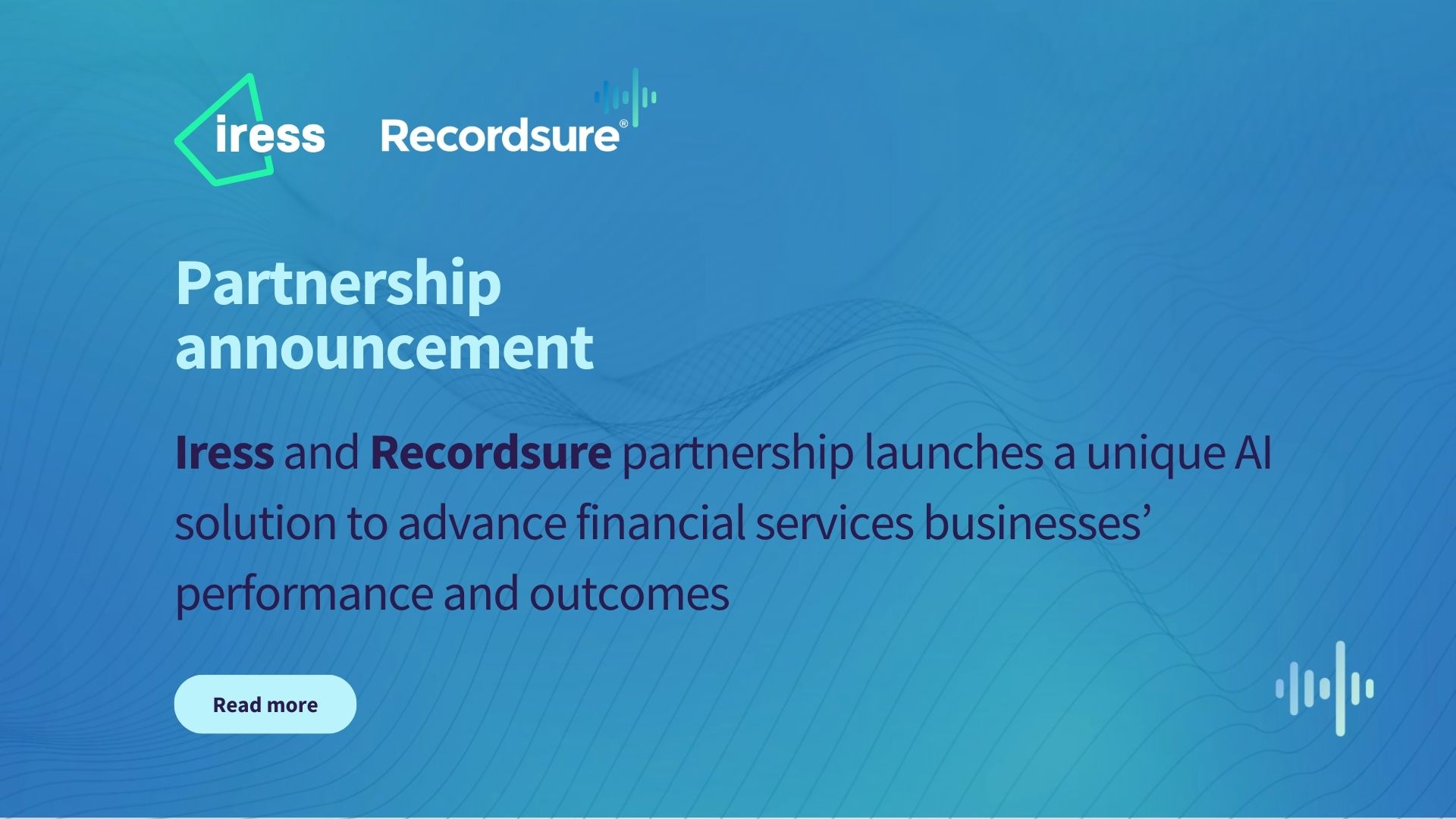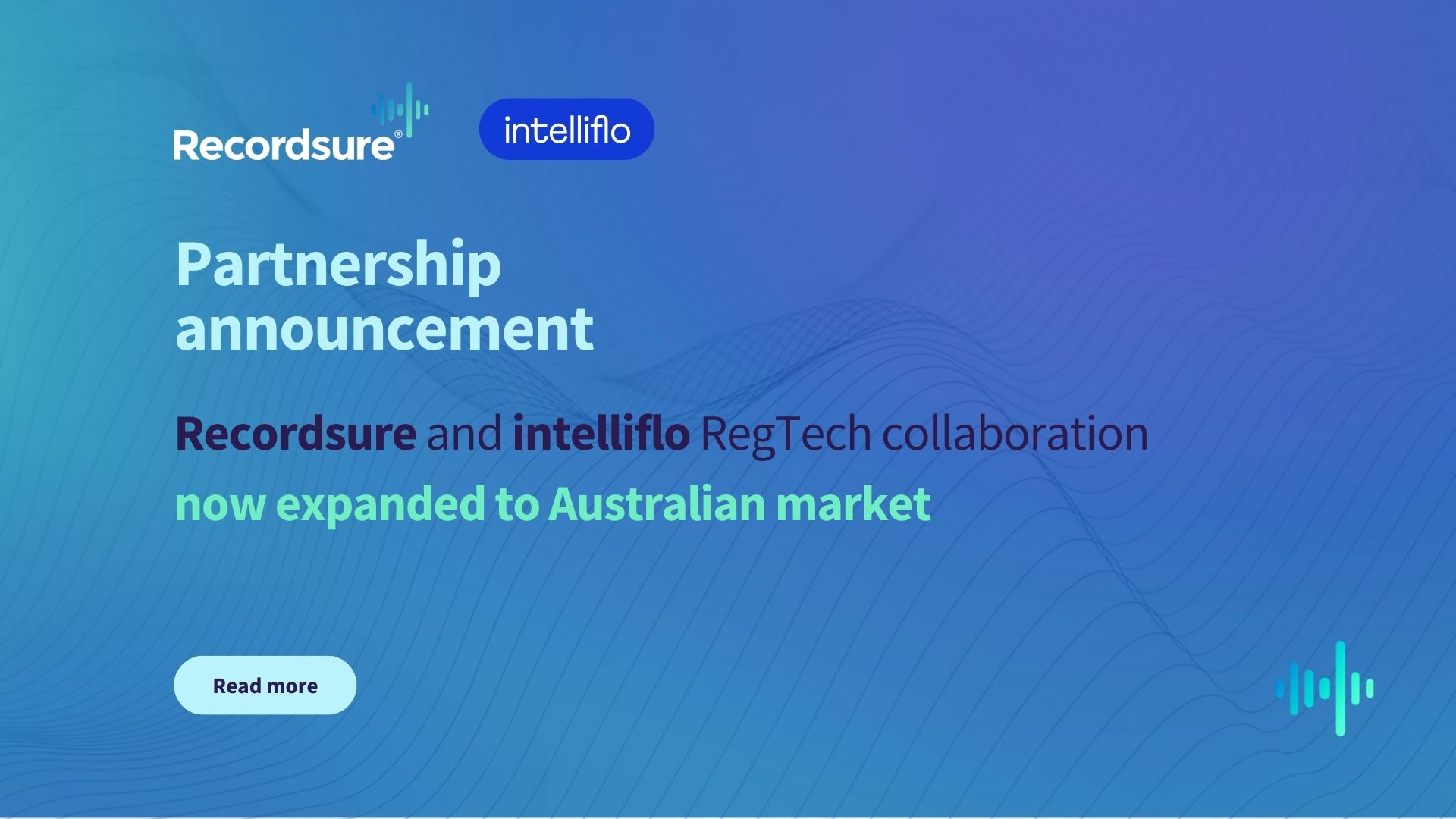Recordsure’s CTO Kit Ruparel recently delved into the intricacies of compliant conversation recording and analysis under the forthcoming MiFID II directive in a joint webcast with ACA Compliance (Europe). We bring you the key highlights of this fascinating session.
Why is conversation recording a key area of focus?
The rapidly changing face of regulation is top of many minds within the financial services industry and MiFID II raises the bar significantly for firms, particularly with its prescriptive rules around appropriate recordkeeping and call recording, which is really driving the focus in this area.
The emergence of new technologies also has a part to play as they push the boundaries of what is possible, including the ability to reliably record face-to-face or mobile conversations. Recording technologies, such as Recordsure, can also deliver wider commercial and compliance benefits, such as enhanced management information (MI), trend analysis and in-depth customer insight.
What are the main challenges of the new conversation recording regime?
Channel Expansion
Although MiFID I did contain an implicit nod to the range of communication channels firms are obliged to record, MiFID II lays out in far more explicit detail the range of communication channels covered by the legislation, bringing technologies such as video conferencing and social media into scope.
Face to face conversation recording is another area firms need to consider when designing compliant recording processes. Typically, the outcomes of face-to-face conversations are recorded via meeting notes or the output of a fact find, but this doesn’t provide a definitive, authentic record of the conversation and agreed outputs. Going forward, MiFID II will require firms to ensure their recordings are in a durable medium which ensures unaltered reproduction.
Because of this expansion, firms need to take ownership of the technologies and recording methods they allow for use, not only in executing transactions but also around any conversations to provide information, such as market updates, which may lead to a transaction.
Communication Expansion
As mentioned above, MiFID II requires firms to record all conversations that is intended to lead to a transaction. This can include conversations designed to provide market information to clients or any other conversation that may influence the actions clients take.
In the retail space this can even include the information on your website at any point in time, as this may encourage a specific action from a client.
How are firms addressing these challenges?
Auditing the communications solutions market is key to understanding the range of tools available to enhance MiFID II compliance. When evaluating recording solutions, firms should consider the following three areas:
Confidentiality. Can these recordings be kept confidential and only accessible by people within the business who have the necessary authorisation?
Integrity. Are there controls in place to ensure that records cannot be tampered with or deleted for the duration of the retention period?
Accessibility. Can you get to the records you need in a timely fashion, whether for your own internal quality processes or to provide to a third party to fulfil your regulatory obligations?
Defining the management information (MI) required from the conversation recording technologies is also essential for success, not only to demonstrate compliance with MiFID II but also to enhance internal processes and business intelligence.
How can Recordsure help?
Recordsure makes monitoring more accurate and efficient, helping firms meet their obligations under MiFID II while also providing a host of commercial benefits to enhance your operation. To find out more about how our RegTech solution could benefit your business, get in contact now.





